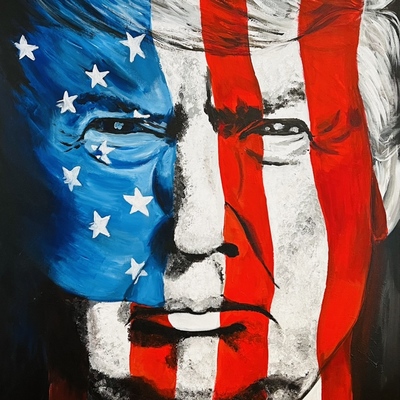
Switzerland Fights Back Against Trump's 39% Tariff Using Fighter Jet Deal as Leverage
The Alpine Standoff: How Switzerland's Delicate Dance with Trump's Trade War Could Reshape Global Economic Diplomacy
BERN, Switzerland — In the mahogany-paneled halls of Switzerland's Federal Palace, where diplomatic finesse has been perfected over centuries, a new kind of crisis is unfolding—one that threatens to unravel the delicate threads of Swiss economic prosperity with the sudden brutality of a 39% tariff sledgehammer.
The shock announcement, delivered without warning on Switzerland's national day, has sent tremors through an economy built on precision, exports, and the assumption that Swiss neutrality provided some immunity from global trade wars. Within 72 hours, the Swiss franc stumbled, export-dependent stocks hemorrhaged value, and industry leaders found themselves using words like "ridiculous" and "dangerous"—language rarely heard in Switzerland's typically measured public discourse.
What emerges from this crisis is not merely another trade dispute, but a masterclass in economic statecraft that could redefine how mid-sized nations navigate the increasingly transactional nature of global diplomacy.

When Neutrality Meets Economic Reality
The mathematics of the crisis are stark. Switzerland's export-oriented economy, which sends nearly 15% of its goods to American markets, now faces a tariff rate that dwarfs those imposed on the European Union, United Kingdom, and Japan—nations that secured rates between 10-15% through rapid diplomatic negotiations.
"The differential treatment exposes Switzerland's unique vulnerability," observed a senior economist at the Geneva Graduate Institute, speaking on condition of anonymity. "Neutrality, historically an asset, becomes a liability when trade policy becomes weaponized."
The targeted sectors read like a catalog of Swiss economic excellence: luxury timepieces from the Jura mountains, precision machinery from Basel's industrial corridors, and medical technology that has positioned Switzerland as a global healthcare innovation hub. Only pharmaceuticals—where Novartis and Roche supply critical cancer treatments to American patients—remain temporarily shielded, a detail that underscores the calculated nature of the tariff strategy.
Economic modeling suggests the tariffs could shave 0.3% to 0.6% from Swiss GDP, with the potential for 0.7% if pharmaceutical exemptions are lifted. For an economy that has grown accustomed to steady, if modest, expansion, such contractions represent a seismic shift.
The Precision of Swiss Leverage
Yet beneath the surface alarm lies a sophisticated calculation of power that reveals Switzerland's underappreciated strategic assets. The nation's response strategy, emerging from crisis meetings in Bern, demonstrates how smaller economies can deploy asymmetric leverage against larger powers.
The most potent weapon in Switzerland's arsenal may be a CHF 6 billion procurement decision that has suddenly become a geopolitical chess piece. The planned purchase of 36 F-35A fighter jets from Lockheed Martin—already contentious domestically—now represents a credible threat that could inflict immediate political pain on American defense contractors and their congressional allies.
Parliamentary sources suggest that freezing the F-35 financing could materialize within days, a timeline that concentrates minds in Washington where defense jobs translate directly into electoral mathematics. The credibility of this threat stems from Switzerland's domestic politics, where even center-right parliamentarians are questioning the wisdom of rewarding American aggression with lucrative defense contracts.
Energy markets provide another avenue for negotiation. Switzerland's offer to expand long-term liquefied natural gas import contracts creates a face-saving opportunity for the Trump administration to claim victory while potentially scaling back the tariffs. The fungible nature of LNG purchases makes this particularly attractive, allowing both sides to quantify the economic benefits of cooperation.
Industrial Resilience Under Fire
In the conference rooms of Switzerland's industrial heartland, a different kind of strategic thinking is taking shape. The Swiss Mechanical and Electrical Engineering Industry Association, representing firms that employ hundreds of thousands, has moved beyond rhetoric to contingency planning that could reshape the country's industrial landscape.
The acceleration of "reshoring" strategies—establishing manufacturing facilities within the United States to circumvent tariffs—represents more than tactical adaptation. It signals a fundamental shift in how Swiss companies conceptualize global operations, potentially hollowing out high-wage manufacturing jobs in traditional industrial cantons like St. Gallen and Jura.
Simultaneously, export diversification toward Asian markets is gaining unprecedented urgency. Trade officials report intensified discussions around participation in the Comprehensive and Progressive Trans-Pacific Partnership and accelerated negotiations with India—moves that could reduce Switzerland's structural dependence on Atlantic trade relationships.
For small and medium-sized enterprises, which lack the capital for international expansion or American facility construction, the calculus is more brutal. Industry associations warn that many could face complete exclusion from the American market, a prospect that could trigger waves of consolidation and unemployment in Switzerland's traditionally stable SME sector.
The Neutrality Paradox in a Transactional World
The crisis illuminates a broader challenge facing Switzerland's traditional diplomatic model. The country's reputation as a global mediator—built through decades of hosting peace talks, maintaining banking secrecy for international clients, and providing good offices for hostile nations—suddenly appears insufficient protection against economically motivated aggression.
"Swiss neutrality was designed for military conflicts, not trade wars," noted a former Swiss ambassador to Washington, requesting anonymity. "We're discovering that economic neutrality may be an impossible position in an era of transactional diplomacy."
The government's response reflects this reality. Beyond the F-35 leverage and LNG incentives, Swiss officials are reportedly considering reciprocal measures that would represent a departure from their traditionally accommodating approach to American demands. These include potential taxation of American technology giants operating in Switzerland and delays in implementing financial data-sharing agreements that the U.S. Treasury has prioritized.
The World Trade Organization complaint being drafted in Bern, potentially filed jointly with Taiwan, represents another evolution in Swiss strategy. While the WTO's appellate body remains paralyzed, the action serves important signaling functions and provides a framework for broader multilateral resistance to unilateral tariff actions.
Market Implications and Investment Horizons
The immediate market reaction—franc weakness and export stock declines—may represent opportunity for strategic investors who understand the sophisticated nature of Switzerland's response. The country's combination of economic leverage, political stability, and adaptive capacity suggests that current market pessimism could prove overdone.
Currency traders should monitor the Swiss National Bank's response, which may lean toward supporting franc weakness rather than its traditional strength—a reversal that could persist into 2026 if tariff pressures continue. This shift could benefit Swiss exporters while creating opportunities in franc-denominated assets.
Equity markets present a more nuanced picture. While luxury goods and precision manufacturing faces immediate headwinds, companies successfully implementing American reshoring strategies could emerge stronger. Pharmaceutical giants, protected by their strategic importance to American healthcare, may actually benefit from competitor weakness.
The acceleration of Asian market development creates long-term opportunities for investors positioning for Switzerland's geographic diversification. Companies with strong Asian distribution networks or manufacturing capabilities may outperform those dependent on Atlantic trade routes.
The Precedent for Future Conflicts
Perhaps most significantly, Switzerland's response to this crisis could establish new templates for how medium-sized economies resist economic coercion from larger powers. The successful deployment of defense procurement leverage, if achieved, would signal to other nations that military contracts can serve as effective diplomatic weapons.
The integration of energy policy with trade negotiations—offering LNG purchases as tariff relief—could become a standard playbook for European nations seeking to manage American trade aggression. The precision of Switzerland's multi-track strategy, combining immediate threats with medium-term incentives and long-term structural adjustments, represents sophisticated statecraft that transcends traditional diplomatic approaches.
For global investors and policymakers, the Swiss response demonstrates that even relatively small economies retain significant agency in an increasingly multipolar world. The key lies in understanding the intersection points where economic dependence creates mutual vulnerability, then exploiting those intersections with surgical precision.
As negotiations intensify in the final days before the August 7 implementation deadline, Switzerland's handling of this crisis will likely be studied for years by nations seeking to navigate the treacherous waters of 21st-century economic diplomacy. The alpine republic may have found itself thrust into an unwanted confrontation, but its response could illuminate new pathways for maintaining sovereignty in an age of economic weaponization.
Investment Thesis
| Category | Key Elements |
|---|---|
| Switzerland's Leverage | 1. F-35 Procurement (CHF 6 bn): Parliament can freeze/cancel the deal, impacting Lockheed Martin (High credibility). 2. LNG Energy Carrot: Offer long-term LNG contracts to U.S. (High credibility). 3. Financial Data (FATCA): Delay/accelerate U.S. access to Swiss banking data (Medium credibility). 4. Pharma Supply: Remind U.S. of reliance on Swiss drugs (Moderate credibility). 5. FDI & Banking: Threaten re-routing investment (Moderate credibility). 6. WTO Soft Power: File complaint or mediate (Low-Medium credibility). |
| Best 3-Track Strategy | 48 Hours: Offer LNG/investment package + threaten F-35 delay unless tariffs drop to 10-15%. 3 Months: Open inquiry into EU fighters, create tariff relief funds, file WTO case with Taiwan. 12 Months: Accelerate India/ASEAN trade deals, reshore U.S. production, lock in FATCA reciprocity. |
| Potential Outcomes | 1. U.S. Backs Down: Tariffs drop (15%), minimal GDP impact, F-35 proceeds. 2. Tariffs Stay: GDP hit (0.3-0.6%), F-35 referendum risk, job losses. 3. Geostrategic Shift: Neutrality seen as transactional, FATCA delays. 4. Market Impact: SNB holds rates, exporters pivot to Asia. |
| Bottom Line | Carrot: LNG/investment as U.S. win. Stick: F-35 freeze + WTO threat. Safety Net: Domestic subsidies + diversification. Outcome: Tariff relief, defense-trade precedent, and long-term export diversification. |
Investment Disclaimer: This analysis reflects current market conditions and established economic indicators. Past performance does not guarantee future results. Readers should consult qualified financial advisors for personalized investment guidance, as geopolitical developments may create significant volatility in affected markets and currencies.